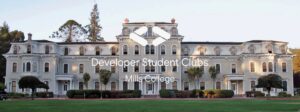
What connects 1.5 million residents, 21 cities and 11 colleges? In short: AC Transit. Alameda-Contra Costa Transit District, known more commonly as AC Transit, is a public transportation agency that services the residents of Alameda and Contra Costa County, California. Despite its significant ridership, many may not know that AC Transit has been taking initiatives towards environmental sustainability since 2004. AC publicly states that sustainability is a core value for the agency. Its website says, “We will create a culture of environmental stewardship through the use of technologies, procedures, and policies that reduce the environmental impact of District operations and contribute to regional, state, and federal sustainability goals while supporting environmental justice in the communities most affected by the District’s decisions.”
According to the U.S. Department of Transportation, bus transit produces 33% fewer greenhouse gas emissions than driving by car. This discount in greenhouse gas emissions is attributed partly to the compact nature of public transportation — many people sharing one bus, as opposed to a single person driving a car — but is also due to transportation agencies such as AC Transit committing to more sustainable bus models.
In 2004, AC unveiled the HyRoad program, an initiative to build hydrogen-powered buses. Hydrogen fuel is a renewable resource that can be generated from wind or solar power, and it emits water rather than greenhouse gases. As of 2019, the HyRoad program has yielded 25 hydrogen-powered buses, which AC employs on their regular transit lines.
In an interview with ballard.com, Chris Peebles, a member of AC Transit’s Board of Directors, said “My personal goal is to have 600 fuel cell buses at AC Transit. I also want to move the conversation away from hydrogen aficionados and toward the general transit industry. We want to expose the fuel cell buses to more people, and educate them that there is a technology that does not have the range limitations or the long fueling times as some of the others.”
While incrementally adding more hydrogen-powered buses to their roster, AC also wanted to go broader with their environmental efforts. In 2007, AC formed a 25-year partnership with MMA Renewable Ventures, Pacific Gas and Electric Company (PG&E), and SunPower, pledging to equip their facilities with solar power. AC managed to carry out their pledge amidst budget challenges in 2010, which they rectified with decreased fares on some buses in order to increase ridership. A decade later, the COVID-19 pandemic again jeopardized ridership, but AC has remained open and even offered free shuttle rides to the Oakland-Alameda County Coliseum, a large vaccination site, from February to April 2021.
In 2021, AC continues its journey of providing East Bay residents with a cheaper and more sustainable alternative to driving. As modes of transportation continue to evolve in a changing — and warming — world, AC is up for the challenge.

